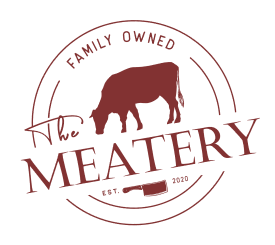Why is Kobe beef so rare?
Kobe beef's extraordinary rarity stems from a combination of strict regulations, geographic limitations, and exacting production standards that make it one of the most exclusive meats in the world. Unlike regular wagyu beef, authentic Kobe beef can only come from a specific breed of cattle - Tajima-gyu - raised in Japan's Hyogo Prefecture.
The certification process is incredibly stringent, with several key requirements that must be met:
- Only purebred Tajima cattle can qualify
- Cattle must be born, raised, and processed in Hyogo Prefecture
- Only steers (castrated bulls) or virgin heifers are eligible
- Cattle must be fed a specialized diet using local grains
- The meat must achieve a marbling score of 6 or higher on the Japanese scale
What makes Kobe beef particularly rare is the limited number of cattle that actually meet these criteria. Of the approximately 3,000 head of Tajima cattle processed each year, only around 3,000 achieve Kobe beef certification. This represents a mere fraction of Japan's total beef production, making genuine Kobe beef one of the rarest food products in the world.
Flavor Profile And Texture Comparison
When comparing Kobe beef to regular wagyu, there are distinct characteristics that set them apart in terms of taste and texture. Kobe beef is renowned for its unparalleled umami flavor profile and butter-like texture that literally melts in your mouth.
Kobe Beef Characteristics:
- Intense marbling that creates a sweet, rich flavor
- Tender texture that dissolves at body temperature
- Complex depth of flavor with subtle nutty notes
- Clean, pure taste without any gamey undertones
Regular Wagyu Characteristics:
- Good marbling, though typically less intense than Kobe
- Tender texture, but slightly firmer than Kobe
- Rich beef flavor with varying intensity
- Broader flavor profile depending on cattle origin
The key difference lies in the density and quality of the intramuscular fat, which creates Kobe's signature "snowflake" marbling pattern and contributes to its uniquely luxurious eating experience.
Certification And Authenticity
The certification process for Kobe beef is governed by the Kobe Beef Marketing & Distribution Promotion Association, which maintains strict control over the authenticity of this premium product. Every authentic Kobe beef cut carries a unique 10-digit identification number that can be traced back to the individual cow.
Official Certification Requirements:
- Must score grade A4 or A5 on the Japanese meat grading scale
- Beef Marbling Score (BMS) must be 6 or higher
- Meat quality score of 4 or 5
- Gross carcass weight must not exceed 470kg
In contrast, the term "wagyu" has broader certification standards that vary by country and region. While all Kobe beef is wagyu, not all wagyu qualifies as Kobe beef. This distinction is crucial for consumers seeking authentic products and understanding true market value.
Why is Kobe beef so expensive?
The extraordinary cost of Kobe beef reflects its labor-intensive production process, limited supply, and exceptional quality standards. Prices typically range from $200 to $400 per pound. However The Meatery has budget options as well, such as Kobe Beef Picanha Slices, Filets, and ribeyes!
Several factors contribute to the premium pricing:
- Intensive care requirements for cattle, including daily massages
- Specialized feed programs using premium grains
- Limited production capacity within Hyogo Prefecture
- Strict grading and certification processes
- International shipping and import costs
The combination of these factors, along with high demand and limited supply, creates a luxury product that commands premium prices in the global market.
How many restaurants in the US sell real Kobe beef?
As of 2025, fewer than 50 restaurants in the United States are officially licensed to serve authentic Kobe beef. This limited distribution is carefully controlled by the Kobe Beef Marketing & Distribution Promotion Association to maintain quality standards and authenticity.
Key Facts About U.S. Kobe Distribution:
- Most authorized restaurants are high-end establishments in major cities
- Annual import quotas restrict the amount of Kobe beef entering the U.S.
- Each restaurant must maintain specific handling and preparation standards
- Certified restaurants receive documentation proving authenticity
Quick Tips when looking for Kobe Beef
When seeking authentic Kobe beef or high-quality wagyu, consider these essential guidelines to ensure you're getting genuine products:
-
Verify Certification:
- Request to see the 10-digit certification number or certificate of authenticity
- Check authenticity through official Japanese databases
-
Choose Reputable Suppliers:
- Work with authorized dealers only (Such as TheMeatery!)
- Research vendor credentials thoroughly
-
Price Awareness:
- Be skeptical of unusually low prices
- Expect to pay premium prices for authentic Kobe
Remember that while genuine Kobe beef is rare and expensive, excellent wagyu alternatives are more readily available and can provide a similar luxury dining experience at a lower cost point. Check out TheMeatery's full Japanese Wagyu Catalog here to find the cut for you!










